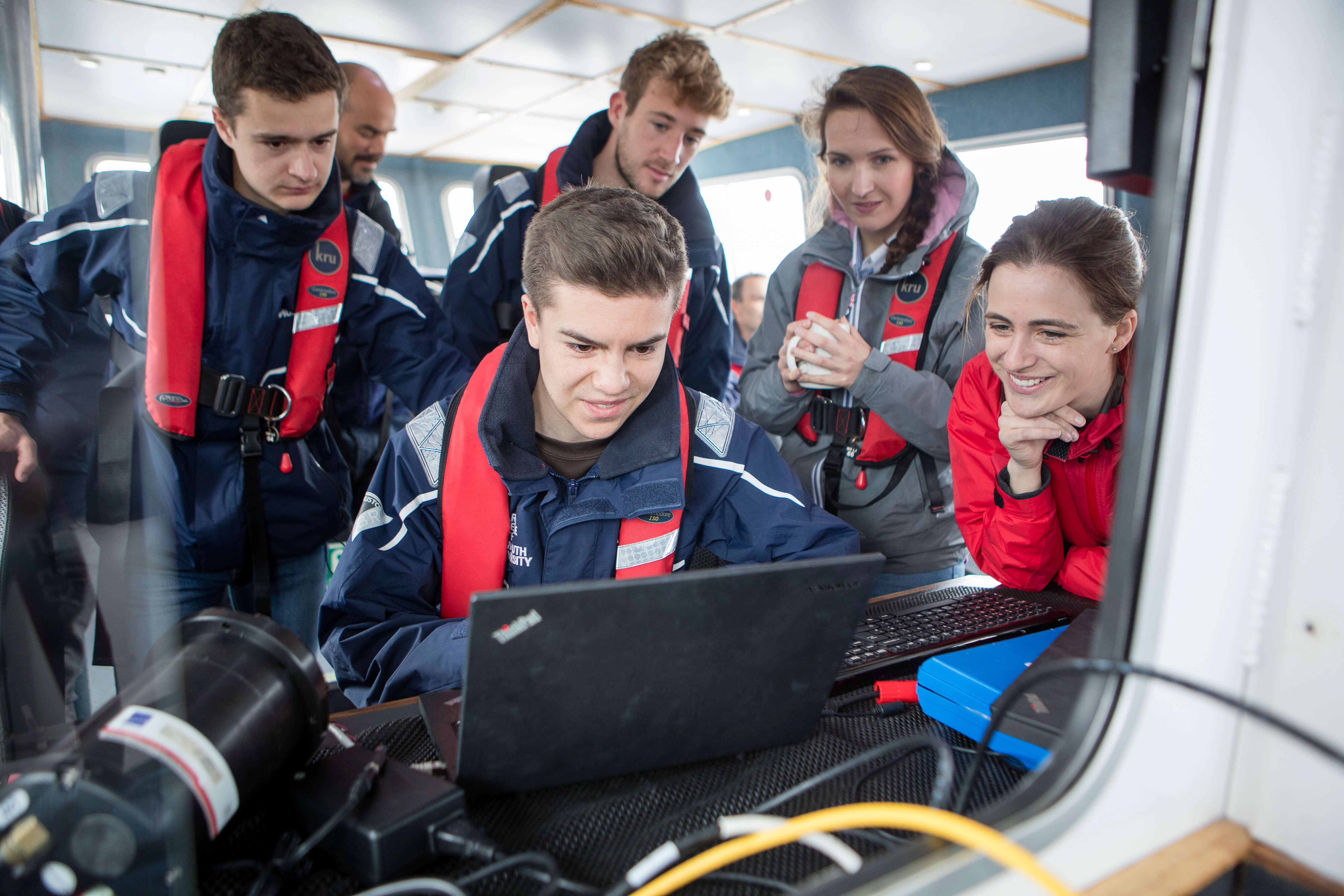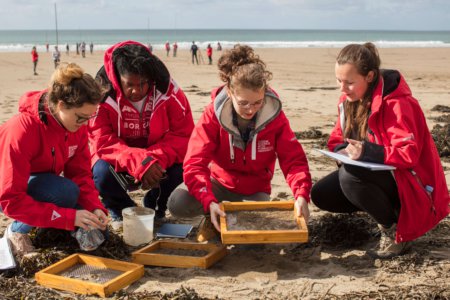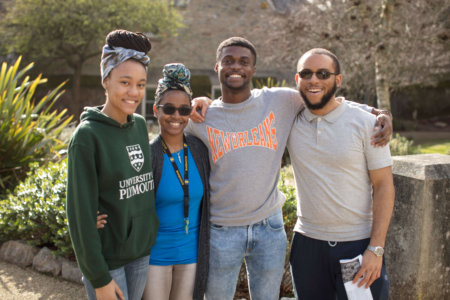Terri Souster, a University of Plymouth marine biology graduate, has a pretty cool career — literally. She worked for the British Antarctic Survey (BAS) for 10 years as a Marine Biologist. “I started my PhD with the BAS in July 2014, and I spent 36 months living and working in Antarctica in order to explore the effects of climate change on animals that live on the sea floor,” she says.
By working, she meant seeing whales swimming past, diving alongside presenter Steve Backshall and his cameraman while they filmed leopard seals, icebergs and marine seafloor organisms, and hanging out with hundreds of penguins.
“We dived just off the island of South Georgia where we were completely surrounded by a king penguin colony of over 600,000 birds. Because there were so many of them, the penguins were confident enough to swim around us and even pecked our dive masks. All you could see were penguins in every direction – it was amazing!” she enthuses.
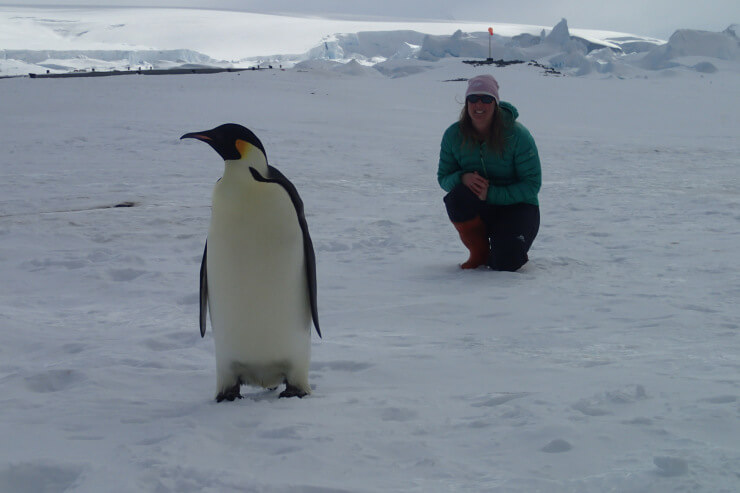
Souster had an unforgettable experience joining the march of the penguins. Source: University of Plymouth
Such dynamic careers are typical of the University of Plymouth’s School of Biological and Marine Sciences graduates. Hands-on degrees, such as the BSc (Hons) Marine Biology which takes full advantage of the South Devon coast as well as some of Europe’s best marine facilities, make this possible.
BSc (Hons) Marine Biology students explore diverse marine life from coastal margins to the deep sea. They learn about microbes found on coral reefs, the physiology and behaviour of marine vertebrates, and the biology of the marine algae that support other seawater life, among others.
They do not just experience marine biology but practice it at the highest levels in both the laboratory and out in the field. At the Marine Station — a landmark 4.65 million pounds development — students have an exceptional teaching and research facility that’s located on the shores of Plymouth Sound, part of the university’s “Waterfront Campus.”
It includes lecture facilities overlooking the sea, a wet lab for sample examination and analysis, a seawater aquarium, field equipment storage and changing facilities and a base for research vessels. Another distinctive feature? As a centre of excellence for diving, students can get professional diving qualifications and develop valuable industry-relevant skills here too. Add field trips abroad to Portugal, South Africa, Sweden, France, and little wonder 91% of students are satisfied overall with their student experience (NSS 2021).
Diving for data in the depths of Antarctica
Withstanding extreme weather conditions. Surviving in darkness. Living with isolation with your nearest neighbours over 100 kilometres away, cut off from the world, with no mobile phone. Swimming through ice. For BSc (Hons) Ocean Science and Marine Conservation graduate Zoe Waring, this is just another day on the job.
Waring is a Marine Assistant at the Rothera research station, collecting data for the Rothera Time Series (RaTS), the only project of its kind in Antarctica. She is based in the Western Antarctic Peninsula (WAP), an area that has experienced significant warming in recent decades. “Our research here, carried out with little disturbance from human impact, makes it an important place to study changes caused by global warming,” she says.
Her project focuses on understanding the feedbacks between ocean, ice and atmosphere, as well as the role of ocean dynamics on the productivity of phytoplankton.
“Alongside this, we undertake a number of dive projects to understand the impact that short term and long term climate events have on the benthic community,” adds Waring. “Diving through sea ice is one of many unforgettable experiences I’ve had.”
From taking in breathtaking vistas to organising mini Glastonbury festivals, her experiences have been nothing short of spectacular. What she saw as a pipe dream is now a reality. “As I gained my HSE Professional SCUBA and other certificates in my second year, I began to realise it was possible [to get this job]. An opportunity followed through one of my lecturers, to help with research in the Southern Ocean on one of the BAS’ ships, the RRS James Clark Ross, and this confirmed my ambition,” she says. “From then on I set about getting as much experience as possible to give myself the best chance of achieving it – that initial thought in my first year then became a reality.”
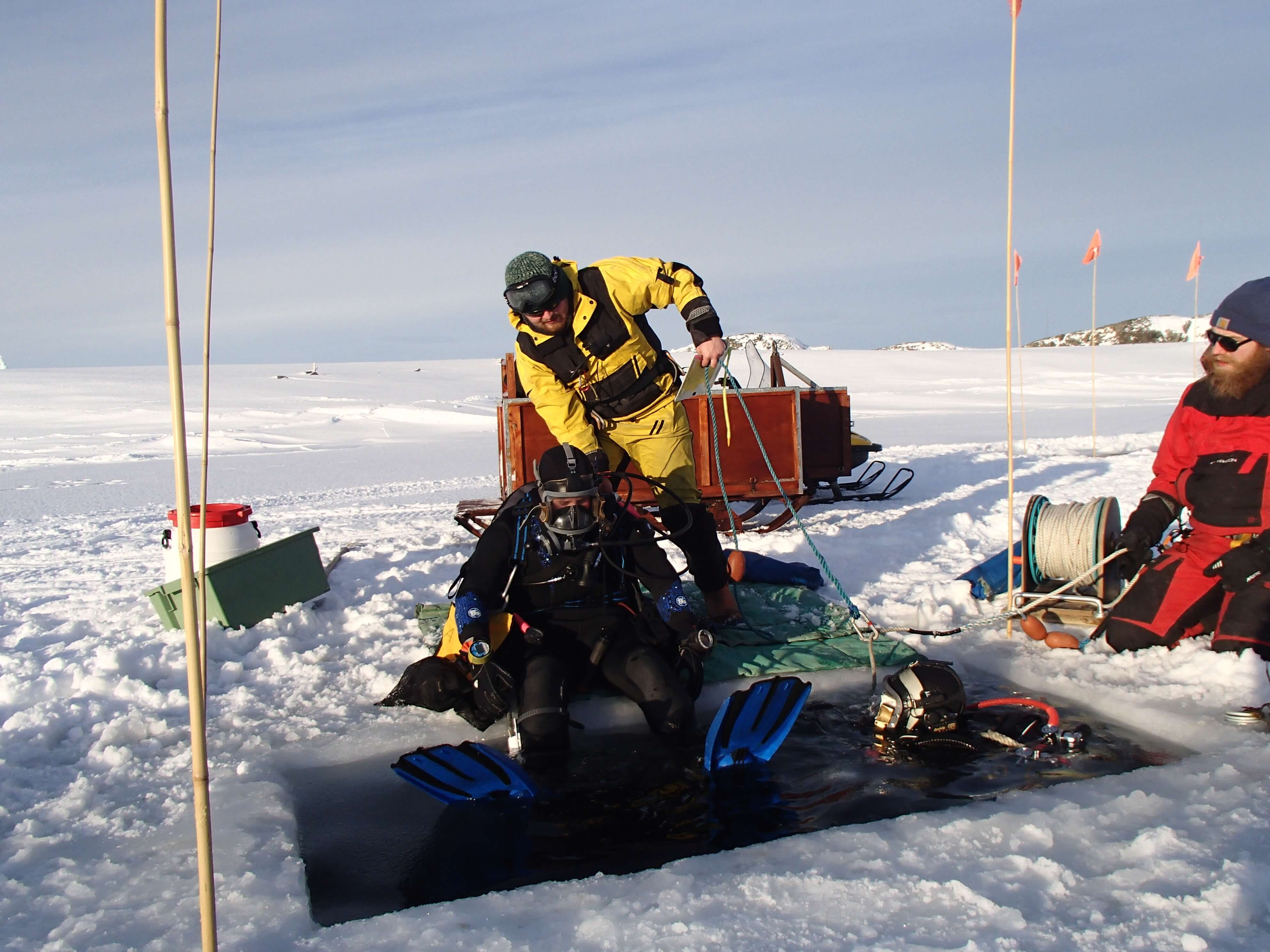
Waring dived into the deep sea for research, an opportunity she would treasure for life. Source: University of Plymouth
The BSc (Hons) Ocean Science and Marine Conservation prepared her well. As it pursues an integrated approach to understanding the oceanographic processes that support ocean life, and marine ecosystems and ocean protection policy structures, students are primed with the skills and enthusiasm to confidently start a job in marine conservation management and scientific research. At the same time, the university has their own fully-equipped six fleet of research vessels, and industry standard oceanographic and surveying equipment, allowing for extensive local fieldwork practice and hands-on experience.
Pair the above with residential trips to South Africa, Isles of Scilly and the Bahamas, and you can see why this BSc has above average subject area benchmarks for student satisfaction and experience (NSS 2021).
A dream placement in China to save moon bears
To fight the cruel, horrific practices against animals, it takes passion, guts and smarts. Lianne Ottewell, an animal lover for as long as she could remember, gained the last two with the help of her BSc (Hons) Animal Behaviour and Welfare.
“Plymouth’s optional placement year really won me over when choosing a course – the flexibility they give you compared to other universities is second to none. This opportunity to work at the China Bear Rescue Centre through my placement led to where I am now, and I could not be happier,” says Ottewell, adding that she joined the UK offices of Animals Asia in 2017, as a Senior Supporter Care Executive after graduating.
At the bear sanctuary, Ottewell would receive bears suffering from a wide range of abdominal tumours and infections, often some form of heart or liver disease, physical impairments, as well as joint and mobility issues caused by years spent in cages. “Despite their poor condition, most make a good recovery, partly because of their resilient nature, but also because of the professional care they receive from the veterinary team,” she explains.
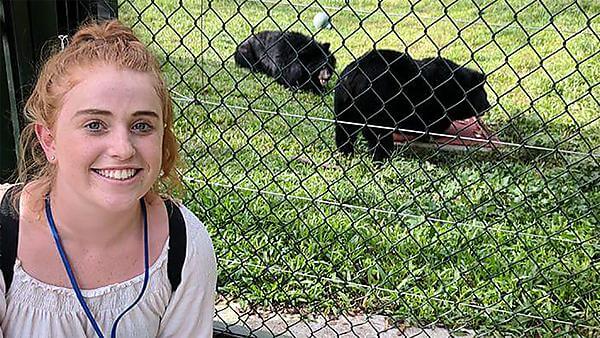
Ottewell enjoyed her placement experience in China where she looked after the moon bears. Source: University of Plymouth
The best part of the job? Going in with the teams to try and hide different treats and toys. “There was never any fooling them! It was so amazing to see them carry out natural foraging and playful behaviour, even after the horror they have experienced for so many long years,” she says.
Students passionate about inspiring change for a more sustainable future will find Ottewell’s BSc programme – as well as other Biological Sciences undergraduate programmes and a Foundation Year pathway – an excellent starting point. These Royal Society of Biology accredited degrees feature hands-on fieldwork both locally and around the world.
With many amazing ecosystems right on the university’s doorstep, this allows BSc (Hons) Animal Behaviour and Welfare students to apply an understanding of animal needs and health as well as undertake practical work, including conducting behavioural and welfare assessment studies and gaining the skills sought by employers. Little wonder that 100% of those polled on the 2020 National Student Survey found this programme intellectually stimulating. Overall, 91% were satisfied with the course quality.
With all these features – fieldwork, placement, facilities, teaching and residential trips, industry links — you can be assured your time at the University of Plymouth’s School of Biological and Marine Sciences would be an extraordinary one. Apply today.
Follow the University of Plymouth on Facebook, Instagram, Twitter, and YouTube

